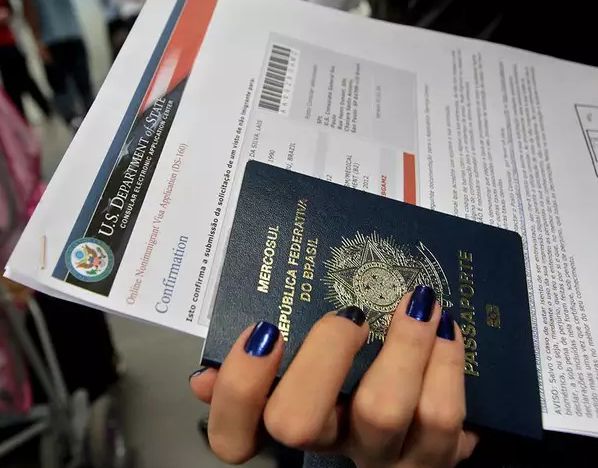Applying for a green card is a complex process, and many applicants encounter legal or immigration barriers that make them “inadmissible” to the United States. For these individuals, a waiver may be the only path forward.
The two most common types are the I-601 Waiver of Grounds of Inadmissibility and the I-601A Provisional Unlawful Presence Waiver. Knowing which one applies to your case—and how to present a strong application—can make the difference between approval and denial.
At US Immigration Consultants, we understand the stakes. We work closely with therapists across the U.S. and partner with our attorney to build strong waiver applications, ensuring that clients present the best possible evidence of hardship and eligibility.
For more details, you can review the official USCIS instructions here: USCIS I-601 Waiver.
What Is the Difference Between I-601 and I-601A?
Although both forms are called waivers, they apply in different situations:
- Form I-601, Application for Waiver of Grounds of Inadmissibility
This is used when a person has already been found inadmissible for reasons such as prior immigration violations, fraud/misrepresentation, certain criminal offenses, or unlawful presence. The applicant typically applies after being denied a visa or green card, often at a U.S. consulate abroad. - Form I-601A, Application for Provisional Unlawful Presence Waiver
This is a special process available only to certain applicants who are physically in the U.S. It allows them to request a waiver of unlawful presence (time spent in the U.S. without legal status) before leaving the country for their immigrant visa interview abroad.
👉 The key difference:
- I-601A is only for unlawful presence and must be filed inside the U.S.
- I-601 can cover a wider range of inadmissibility grounds but is usually filed outside the U.S. or after a denial.
Who Needs a Waiver?
You may need an I-601 or I-601A waiver if you are inadmissible under U.S. immigration law for reasons such as:
- Unlawful presence (overstaying a visa or entering without inspection).
- Certain criminal convictions.
- Fraud or misrepresentation when applying for a visa.
- Health-related grounds, such as lacking required vaccinations.
- Prior immigration violations (such as a removal order).
Not everyone who is inadmissible can qualify. To win approval, you must show that refusing your admission would cause “extreme hardship” to a qualifying relative (a U.S. citizen or lawful permanent resident spouse, parent, son, or daughter).
Proving Extreme Hardship in 2025
The central requirement for most I-601 and I-601A waivers is proving extreme hardship.
According to USCIS, you must submit evidence of your family relationship and documentation that demonstrates your qualifying relative would face significant difficulties if your application were denied.
Examples of hardship factors include:
- Medical: A qualifying relative has serious health conditions and depends on you for care.
- Financial: Loss of your income would cause severe economic struggles.
- Educational: Disruption of a child’s education if forced to relocate abroad.
- Emotional/Psychological: Emotional trauma caused by separation, often supported by evaluations from licensed therapists.
- Country Conditions: Safety, political instability, or lack of adequate healthcare in the country of relocation.
At US Immigration Consultants, we strengthen waiver cases by working directly with therapists and medical professionals to provide strong evaluations. These documents are often decisive in proving hardship.
For more information, USCIS outlines the evidentiary requirements here: USCIS I-601 Waiver Guidance.
Processing Times and Success Rates
Processing times vary depending on whether you are filing an I-601 or an I-601A:
- I-601A Waiver: As of 2025, USCIS processing times are averaging 24–36 months.
- I-601 Waiver: Times can vary by location but often take 12–24 months.
While waiting can feel overwhelming, many applicants are approved if they submit a well-documented application. Approval rates are generally higher when the waiver includes comprehensive hardship evidence supported by professional reports.
Common Reasons Waivers Are Denied
Despite the possibility of success, many waiver applications are denied. The most common reasons include:
- Insufficient evidence of hardship: Simply stating that separation would be difficult is not enough. USCIS requires detailed documentation.
- Failure to prove the qualifying relationship: Applicants must provide birth certificates, marriage certificates, or other official records.
- Ineligibility for the waiver requested: Filing the wrong form (I-601 vs. I-601A) can lead to automatic denial.
- Poorly prepared applications: Missing documents, weak statements, or lack of professional support can sink a case.
Final Thoughts
An I-601 or I-601A waiver can be the key to reuniting with your family and securing your future in the United States. But success requires more than just filling out forms—you must submit compelling evidence that meets USCIS’s strict standards.
At US Immigration Consultants, we don’t just prepare paperwork. We:
- Partner with therapists nationwide to provide professional hardship evaluations.
- Work alongside our attorney to ensure your application is legally sound.
- Guide you step-by-step through gathering evidence, preparing affidavits, and meeting USCIS deadlines.
Our team has helped many clients win waiver approvals—schedule a consultation today to discuss your case.



